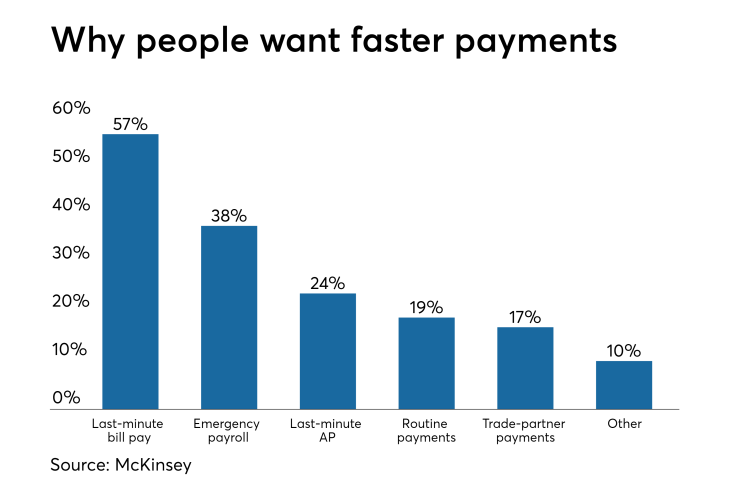With a decision looming from the Federal Reserve on whether it should build a real-time payments settlement service, The Clearing House has taken steps to attract smaller depositories to its own system.
The Clearing House, which is owned by a group of the nation's largest banks, on Thursday announced the addition of four seats for community banks and credit unions on its RTP Business Committee. The panel, which has representatives from each of the organization's member banks, is responsible for providing input and guidance to the Clearing House as it develops its real-time payments network.

The Clearing House also released a set of principles describing how the real-time network will be managed and priced.
Cary Whaley, a vice president at the Independent Community Bankers of America, stopped short of endorsing the service but said the recent moves are steps in the right direction for community banks. Smaller depositories have generally been reluctant to sign up with The Clearing House because of the connection to larger financial institutions.
Whaley said adding the board seats will ensure that all financial institutions, regardless of size, can participate in the real-time payments system and shows that The Clearing House is willing to extend governance and rulemaking responsibilities to community banks.
That has not always been the case, Whaley said. "So this is a step of good faith," he said.
Andrew Morris, senior counsel for research and policy at the National Association of Federally-Insured Credit Unions, said increasing credit union representation is a positive development that can help make network governance more responsive to the payment needs of the credit union industry and its 115 million members.
Community banks are also watching closely to see what action the Fed will take after a public comment period on its fast-payments efforts ended in December. The central bank is considering developing its own real-time settlement service that would operate 24 hours a day, 365 days a year.
The Clearing House's principles state that fees to use the system are the same regardless of the size of the bank. "Everybody pays the same price per transaction," Whaley said. But cost differences could occur when the service is integrated into banks' core processors, he said.
The Clearing House's network is intended to be ubiquitous, and so extending its management beyond the large, member banks is consistent with that mission, according to Whaley.





